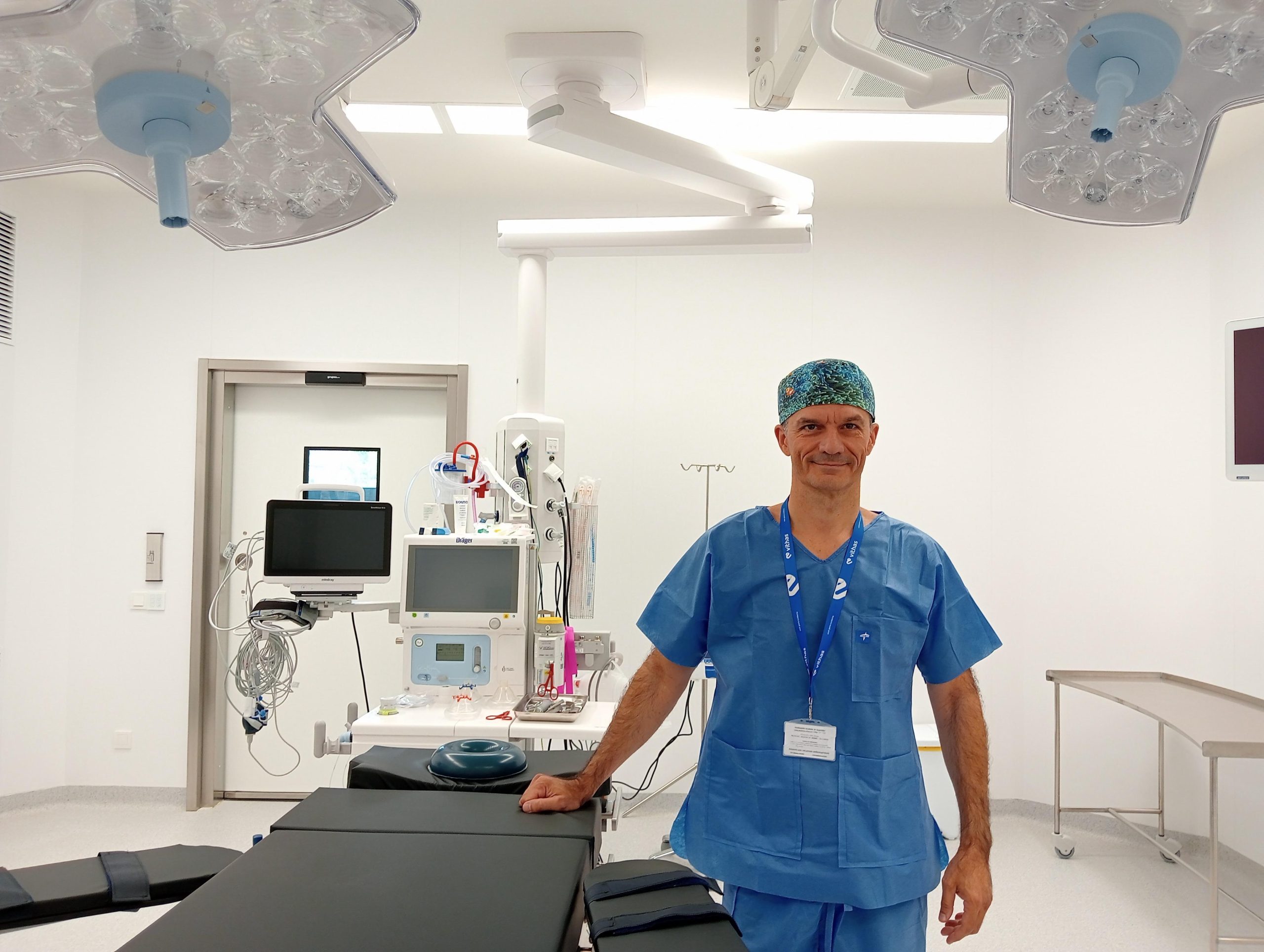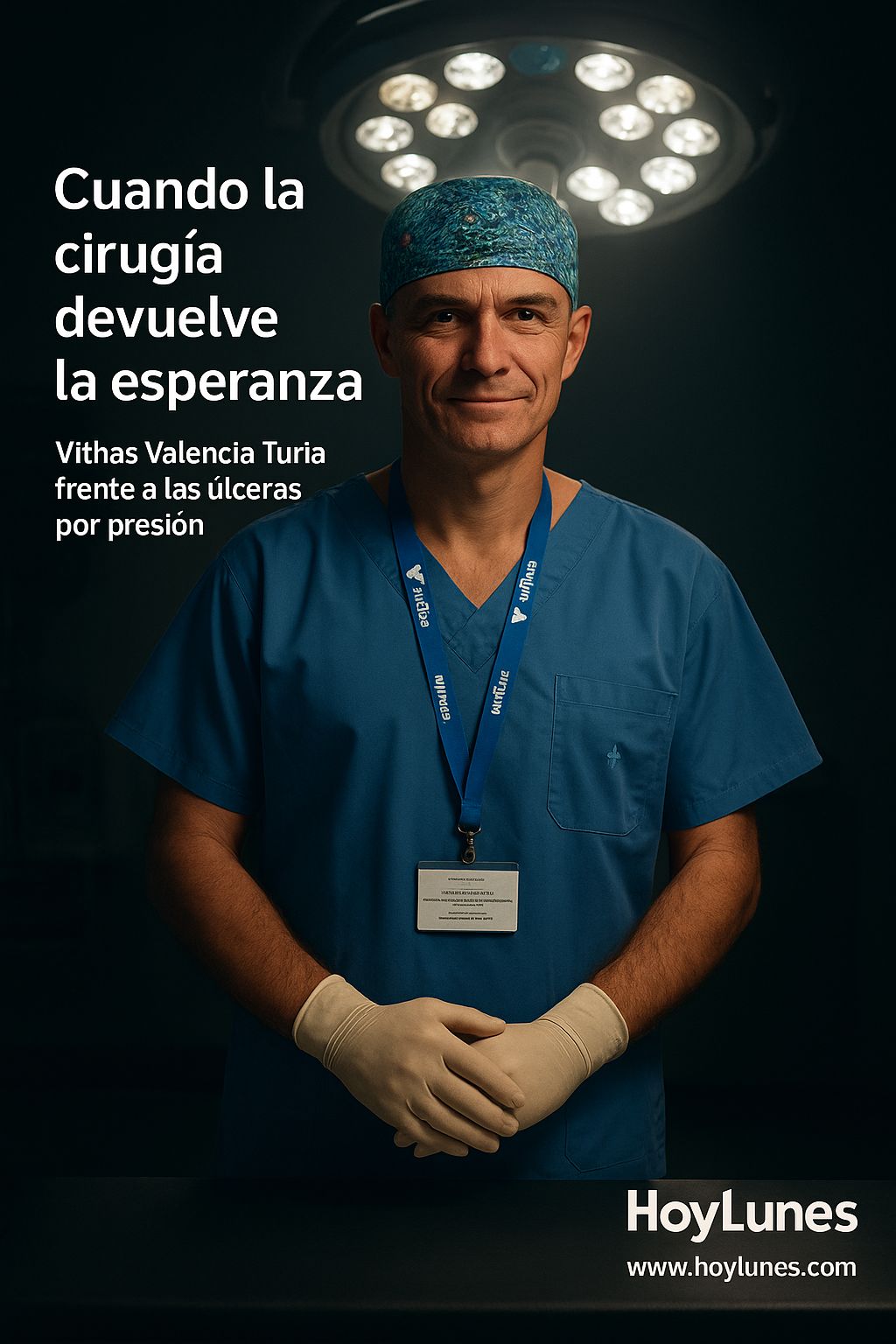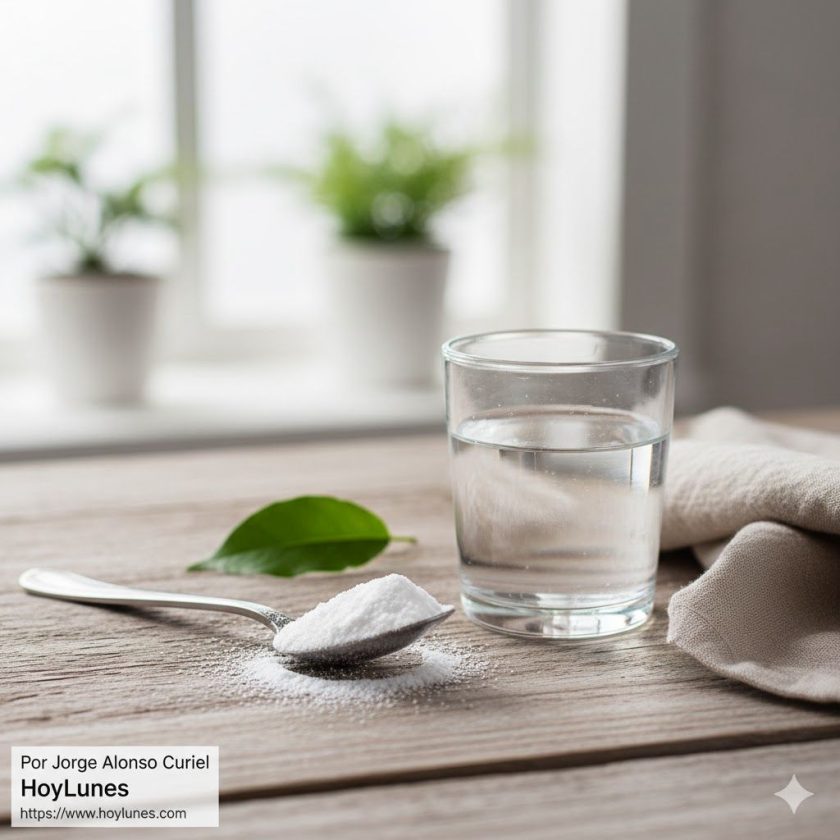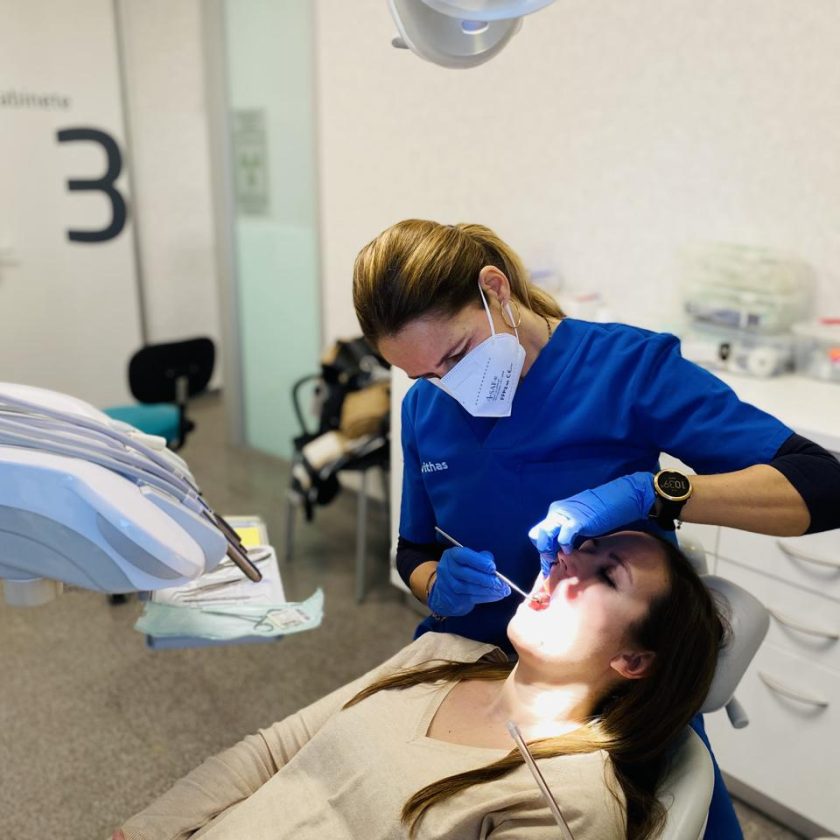A pioneering approach in Valencian healthcare that combines surgical expertise, innovation, and humanity to improve the quality of life of the most vulnerable patients.
The Plastic, Aesthetic, and Reconstructive Surgery Department of Vithas’ new center in Valencia offers personalized surgical solutions, tailored to the progression of each ulcer.
HoyLunes (Valencia) – Vithas Valencia Turia Hospital, which opened its doors last April, has incorporated into its service portfolio a specialized surgical approach for the treatment of pressure ulcers—a condition that particularly affects patients with reduced mobility and can seriously compromise their quality of life.
Its Plastic, Aesthetic, and Reconstructive Surgery Department, headed by Dr. Alessandro Thione, one of Spain’s top 50 physicians in the XI edition of the Top Doctors Awards, has extensive experience performing complex procedures that help restore damaged tissues, prevent complications, and promote both functional and aesthetic recovery.
Pressure ulcers—also known as bedsores or decubitus ulcers—are among the most common complications in bedridden, immobilized, or mobility-impaired patients. They are skin and subcutaneous tissue injuries caused by sustained pressure on the skin, especially in vulnerable areas such as the sacrum, heels, hips, or shoulder blades. Their impact is not only physical but also emotional and social, as they affect autonomy, self-esteem, and quality of life for both patients and their families, who suffer when these wounds fail to heal.
During the warmer months, these lesions face an especially unfavorable environment: excessive sweating promotes skin maceration, dehydration hinders healing, and heat increases the need for frequent postural changes.
The surgical management of pressure ulcers, still relatively uncommon in many centers, represents a significant improvement over conventional treatments.
“When ulcers reach advanced stages, conservative treatments are no longer sufficient. In these cases, surgery is the only effective option to stop progression, control infection, and restore functionality to the affected area”, explains Dr. Thione.

Surgery Adapted to the Severity of the Lesion
The initial management of pressure ulcers includes local wound care, pressure relief, and improved nutritional status. However, when wounds are deep, chronic, or present necrosis (death of skin and subcutaneous tissue) and infection, surgery becomes necessary.
Vithas Valencia Turia Hospital offers a variety of techniques adapted to the progression of each ulcer. In less severe cases, surgical debridement is performed to remove dead or infected tissue, cleaning the wound and promoting healing, or closure by secondary intention, which allows the wound to heal naturally and progressively without direct suturing.
For more complex injuries, coverage with grafts or skin flaps from the patient is used. In severe or recurrent cases (when the ulcer has reappeared), advanced musculocutaneous flaps are employed, transferring tissue composed of muscle and skin, with its intact blood supply, from another area of the patient’s body to cover the ulcer.
“Thanks to these techniques, we not only manage to close the wound but also prevent recurrences, improve function, and reduce long-term complications. Ultimately, surgery allows patients to regain autonomy and quality of life”, emphasizes Dr. Thione.

Prevention and Comprehensive Care
In any case, the best tool against pressure ulcers remains prevention, through proper patient mobilization, the use of special mattresses and support surfaces, and adequate hydration and nutrition.
Nevertheless, once the lesion is present, early diagnosis and the availability of advanced surgical options are crucial to prevent a complication—which often begins silently—from becoming a chronic and debilitating problem.
About Vithas
The Vithas Group consists of 22 hospitals and 39 medical and care centers across 14 provinces. With 12,600 professionals, Vithas has become one of the leaders in Spanish healthcare. In addition, the group includes the Vithas Foundation, Vithas Red Diagnóstica, and the purchasing center PlazaSalud+.
Vithas, backed by the Goodgrower group, bases its corporate strategy on accredited healthcare quality, patient experience, research and innovation, and social and environmental commitment.
#hoylunes, #los_hospitales_vithas,



